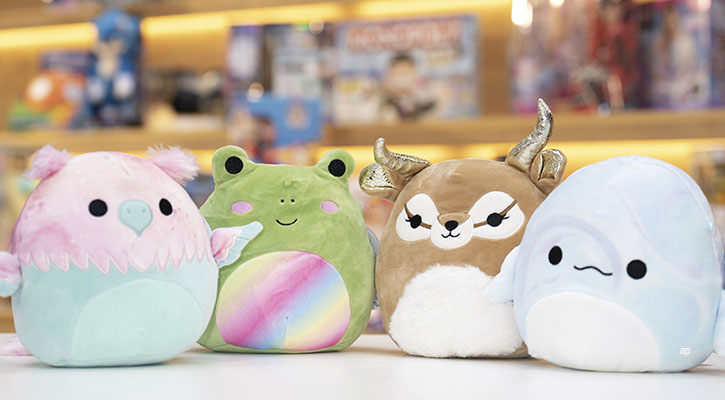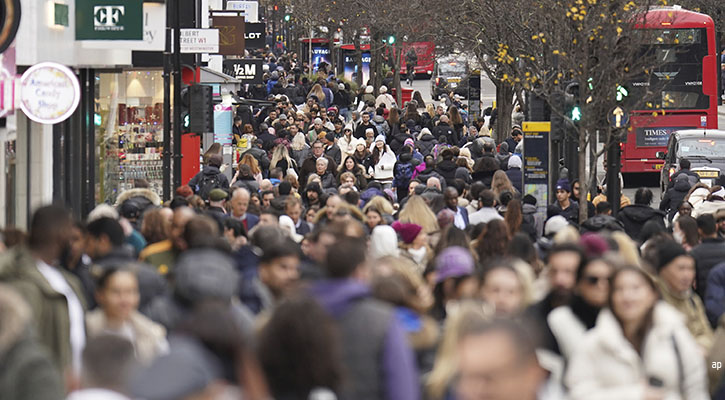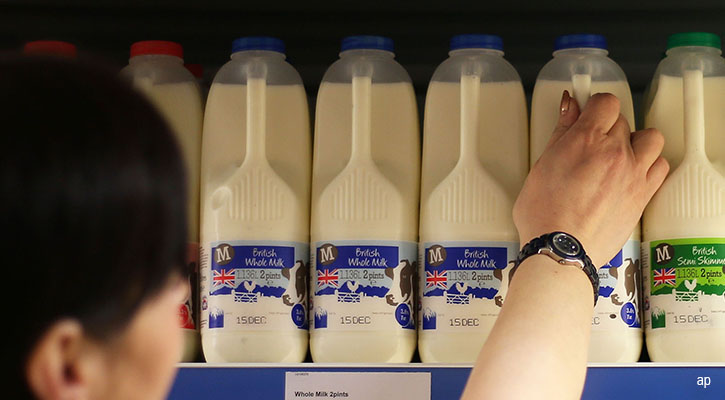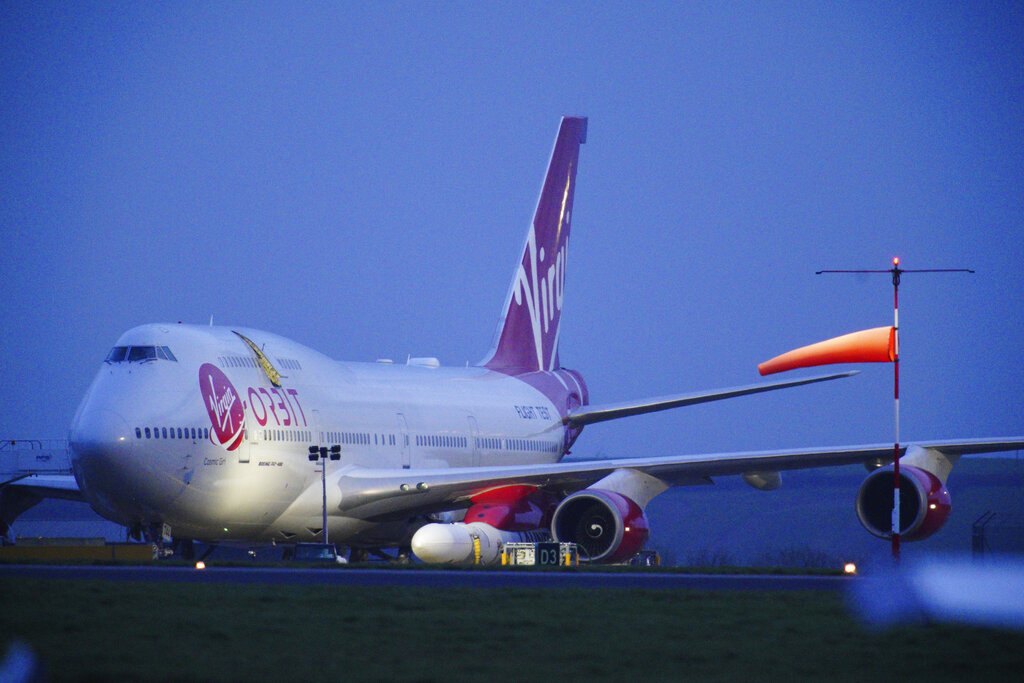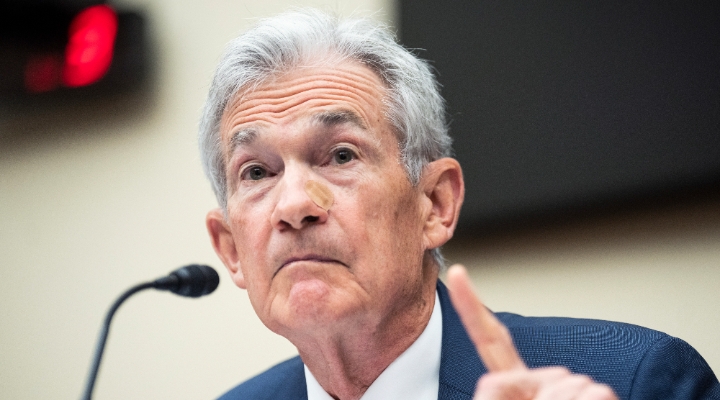Crypto's Wild Frontier
The UK’s nascent crypto industry has been dubbed a “Wild West” by MPs. And as in all good cowboy films, the hard-pressed overworked sheriff – aka the Financial Conduct Authority - clearly has his hands full trying to clean up his town and keep the marauding hoodlums at bay. This week we learned that the City regulator rejected a whopping 85% of registrations for crypto firms in the UK, with those bidding to run these firms lacking “appropriate knowledge, skills, and experiences to carry out allocated roles and control risks effectively”. The FCA added they’d also identified “likely financial crime or direct links to organised crime”. In other words in the crypto industry there’s been a rush of chancers and outright criminals all hoping to strike gold.
Kidults Buying Toys
Parents are spending less on toys and games for their children thanks to the cost-of-living squeeze. But it is not all bad news for toy manufacturers. There has been a rise in the number of young adults buying toys for themselves, presumably as a means of entertainment now they have less money to spend going out to pubs, clubs and the cinema. Popular “kidult” toys include action figures, board games and “squishmallows” – super soft cuddly toys that come in a range of whimsical animal shapes. Apparently they are “very huggable” and can help lower anxiety and provide comfort, which is just what we all need at the moment.
Red Flag Waved Over Green Products
Regulators are starting to test the “green” claims on many everyday household goods, including cleaning products and toiletries. The Competition and Markets Authority is concerned that shoppers are paying a premium for so-called eco-friendly goods, which may have limited or non-existent environmental benefits. Many products, the CMA pointed out, don’t really detail how their packaging is “more sustainable” or how a product is “better for the environment”. Those that fail to demonstrate their green credentials can expect to be blackballed.
A Cadbury Does Chocolate
Big companies often get into legal battles with smaller family-run businesses whose similar-sounding names might infringe their trademark. So it will be interesting to see how Cadbury’s – now owned by US giant Mondelez International – deals with a new London-based chocolate shop business, founded by its founder’s great-great-great grandson, James Cadbury. While the business, Love Cocoa, does not use the Cadbury brand, much of the publicity has, not surprisingly, centred on his famous name and love of all things chocolatey. The business will sell bars, chocolate ice-cream and hot chocolate. Cadbury’s original founder John Cadbury also sold hot chocolate in his first Birmingham grocery store and used the aroma to attract customers in. The smell isn’t just appealing to potential customers: James Cadbury has managed to attract a number of high-profile investors, including one of the early investors in Betfair.
Celebrities Back Greener Banking
Will the investment strategies of global banks now take into consideration the thoughts of actors like Emma Thompson, Aisling Bea and Stephen Fry? It seems doubtful, but the trio are the latest celebrities to help publicise the Make My Money Matter campaign - launched by Four Weddings and a Funeral director Richard Curtis. The campaign highlights the apparent hypocrisy of a number of high street banks which it says are funding fossil fuel expansion despite green pledges. And it is calling for customers to vote with their feet. The banks named have all argued they are taking steps to stop the financing of new oil and gas fields, though this is likely to be due to political and regulatory pressure to adopt net zero targets, not just a telling off from celebs. Still it would be interesting to learn where the award-winning backers of this campaign keep their money — surely Co-operative Bank must have more Bafta-winning account holders than most of its main rivals?
Switching Up
A record number of people are now switching banks. This doesn’t seem to be driven by a desire to bank with greener institutions though, more the need to maximise money in your pocket. The emergence of £200 introductory bonuses, and the prospect of marginally more attractive rates appears to be driving this activity. Almost 400,000 people switched bank accounts in the last three months of 2022, the highest figure since banks introduced streamlined switching services back in 2013 to boost competition in the sector. In the past it was thought people only switched if they had a problem with their current provider, with the perception being that there was little financial benefit for the hassle of moving. But this has now changed with these golden hellos and a cost-of-living squeeze.
Glass Half Full?
Is drinks maker Diageo celebrating the end of dry January? On the one hand its interim results showed higher than anticipated sales growth, suggesting that the cost-of-living crisis isn’t stopping customers enjoying a tipple of some of its well known brands, such as Johnnie Walker whisky and Smirnoff vodka. But on the other hand, sales in the all-important North American market were disappointing, growing at a slower rate than expected, and causing its share price to dip again. The company has also been shuffling its range of branded drinks. Rum is apparently in, with its purchase of the “super-premium” Don Papa brand from the Philippines, though six months ago it decided there was less of a market for peach schnapps, disposing of its Archers brand, a drink which probably had its heyday back in 1980s wine bars.
Clegg's Got This
Ahead of another run at the presidency, Meta has said it will allow Donald Trump back onto its Facebook and Instagram platforms after serving a two-year ban. This is a decision which may not please anyone. Many will object to Trump’s reinstatement on social media while he continues to insist the last election was “stolen” – while his supporters may be infuriated by the announcement that new “guardrails” will be in place to deter “further violating content”.
In a blogpost Nick Clegg, former Liberal Democrat leader and now senior Meta executive, suggested this could mean Trump’s posts are subject to more stringent moderation, with action taken even if a post doesn’t violate the company’s own “community standards”. This could include removing the share button or restricting access to advertising tools. Although no official announcement has been yet made it seems likely that Twitter will also follow suit in lifting its ban on Trump posting. Given Trump has just 5m followers on his Truth Social platform it seems likely, guardrails or not, he will be back on a social platform near you soon with his own megaphone brand of politics.
Taxing Times
Conservative party chairman and briefly tenured chancellor Nadhim Zahawi clings on for now but tax talk at the top of government is an unhelpful distraction for those little people who have to file their returns to meet the January 31 deadline. The head of HMRC this week told MPs that there's no such thing as an innocent error in tax matters. As journalist Laura Miller wrote on Twitter this week: "This government is so rotten it's made the nation root for *checks notes* THE TAXMAN."
With the self-assessment deadline just days away it is perhaps a good time to point out that the HMRC takes a dim view of late payers, careless or otherwise, when it comes to filing their tax return and paying on time.
Croatian Cost of Coffee
Croatia is only a few weeks into adopting the euro but the grumbles have already started about price rises, a predictable and inevitable backlash that tends to happen when European countries join the single currency. It's usually tourists who complain loudly, but the season has not started yet. Bulgaria is slated to adopt the euro next year so expect more of the same then.
Food and drink prices are causing the biggest controversy and now the government has got involved. Some retailers are already being investigated for putting up prices, despite a firm ruling that prices cannot be higher than they were on December 31.
These retailers, which include kiosks selling coffee and hot dogds, have hit back - saying they've been displaying dual prices before the start of the year. They have to keep doing this for the rest of 2023 to cater for the slow on the uptake - and the "how much!" brigade. According to website CroatiaWise, a cup of coffee can vary between 1 and 3 euros in the more touristy places. That's still way below London prices. Money nerds: Croatia converted at 7.53 kuna to one euro.







